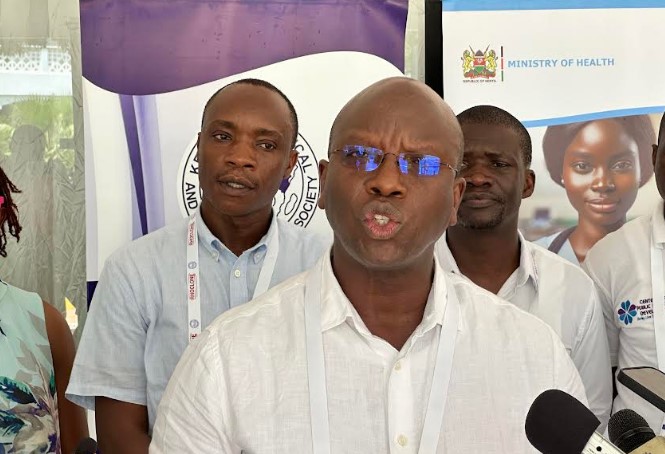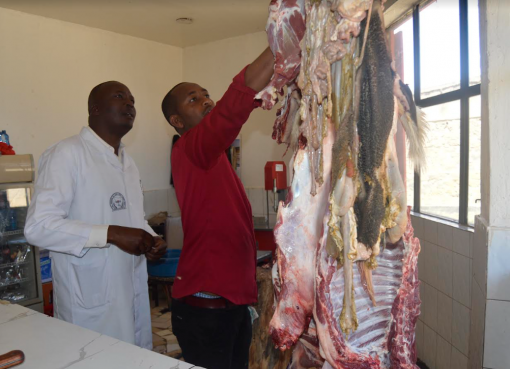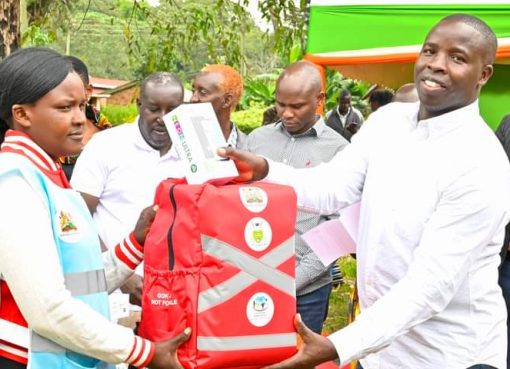The Centre for Public Health and Development (CPHD) has urged expectant mothers to utilise the introduction of AI-enabled Point-Of-Care Ultrasound (POCUS) during pregnancies to prevent further complications upon delivery.
According to reproductive health experts, the initiative empowers non-specialist clinicians to conduct comprehensive screenings for gestational age, foetal viability, placental location abnormalities, foetal presentation and multiple gestations.
Speaking during the 49th annual scientific congress at a Mombasa hotel, president of the Kenyan Obstetrical Gynaecological Society (KOGS) Dr. Kireki Omanwa highlighted that the current maternal mortality rate within the country is unfortunate; hence, quality care to mothers is of great significance.
“Our maternal mortality ratio is not very good. We are losing a lot of mothers because of different reasons; hence, as health workers, we are obliged to come up with a solution to such a concerning issue,” he said.
He added that through Point-Of-Care Ultrasound (POCUS), specialists can identify high-risk pregnancies at an early stage, urging expectant mothers to attend at least one session during the pregnancy period.
Dr. Omanwa said there are various reasons resulting in a high maternal mortality rate, including excessive bleeding after delivery, hypertensive disorders in pregnancy, sepsis infection, post-abortion complications and obstructed labour.
Themed “collaborative partnerships for maternal health: Building alliances between stakeholders to prevent maternal mortality, share best practices, and drive systemic change through innovation,” the one-week forum sought to discuss ways to enhance health care for mothers, especially the expectant ones.
The conference is being attended by over 700 delegates from across the globe, with discussions geared towards sensitising the public on POCUS and national policies supporting integration, educating on AI-enabled POCUS devices and their impact on practice, and sharing experiences on the use of POCUS in the country, aimed at building momentum for POCUS integration into routine maternity care for early screening, management and referral.
On his part, the founder of CPHD, who is also an advocate for Public Health Bernard Olayo, termed the AI-enabled POCUS Ultrasound as a game changer, as it has enabled clinicians to detect complications on the spot; hence, they are properly managed.
“This is a huge component in cutting back Kenya’s maternal and newborn mortality rate because the outcome of the baby really depends on how you take care of the pregnant woman,” he said.
Olayo commended the government for its unwavering support towards POCUS, highlighting that it has been at the forefront in providing various resources, including funding in health institutions, to ensure every mother can access the service across the 47 counties.
He said the number of Kenyan women and newborns dying is a bit unfortunate, since the skills available in the sector, if deployed appropriately, can be able to save lives.
“Having a point of care ultrasound will help us a lot because we will have many front-line soldiers with the necessary skills to help us identify early on which woman is likely going to experience complications. This technology will really help us to pick out who is most likely to have a bad outcome and bring them on to the right people to take care of them,” he said.
Olayo added that Kenya is the first country that has developed guidelines on the Point of Care Ultrasound including some lines on the AI part of it.
At the same time, the government has been very advanced and the only gap is on how to finance the solutions and integrate them into healthcare.
A representative from the Ministry of Health, Jane Patrick, said the Ministry is at the forefront of making the gadget accessible as various entities have come up with different gadgets.
She noted that the Ministry is working with quite a number of stakeholders to ensure POCUS reaches the underserved areas.
Patrick said there are national guidelines that have been presented, coupled with the training of health providers from underserved areas, and also talks with manufacturers to ensure the affordable machines reach the deserving areas.
On matters of policies, she noted that there are several health policies that support innovation and technology, starting with the National Reproductive Health Policy 2022-2032, which supports innovation and technology in maternal and newborn health.
Patrick added that there is a quantum of care package for maternal and newborn services, which supports POCUS.
She said POCUS is already aligned and mainstreamed in the national policies and guidelines.
“We developed the national POCUS guidelines last year and we launched them in November 2024. Our aim is to standardise the provision of POCUS services across the country. The guidelines are very elaborate on what can be done in the three trimesters of pregnancy and on the indication of POCUS,” she said.
By Chari Suche and Nuru Soud





